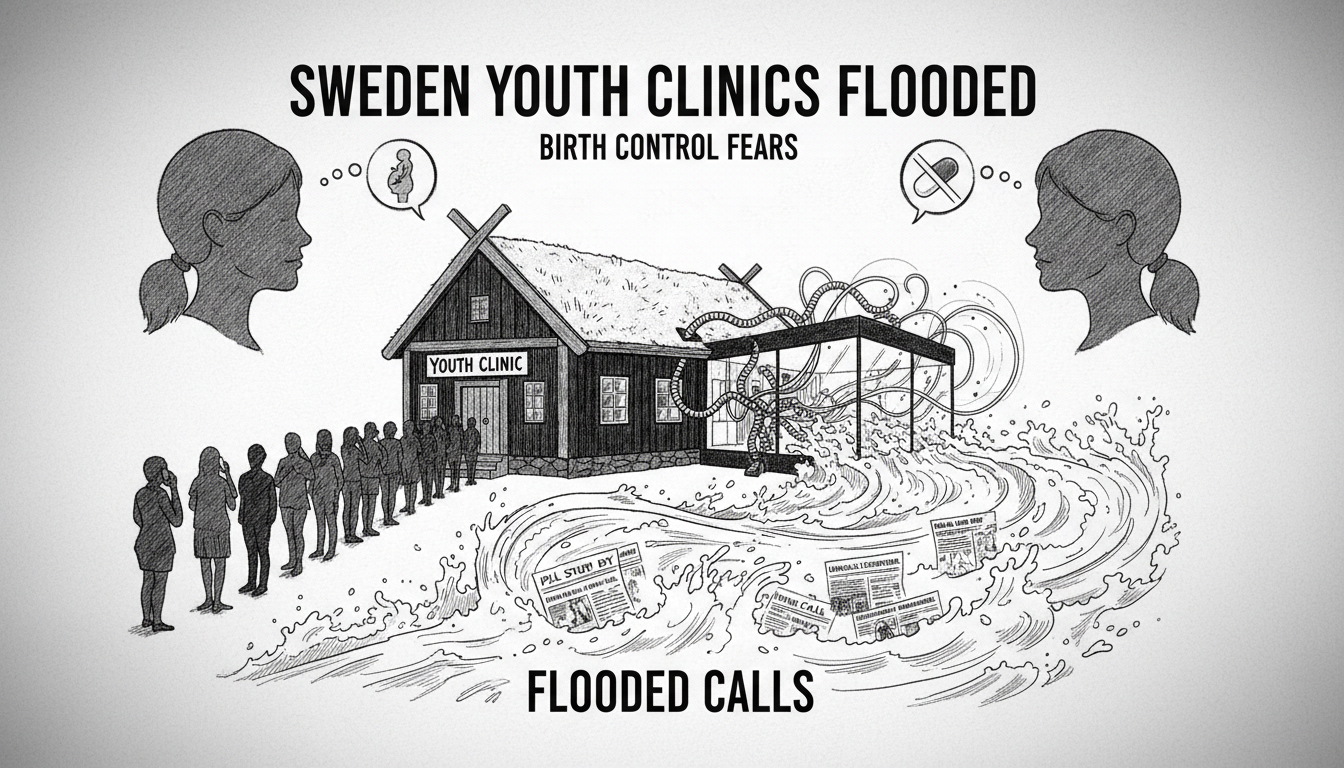Youth clinics across Sweden face overwhelming phone calls from concerned young people. A new study about birth control pills and breast cancer risks has sparked widespread anxiety. Midwives in Gothenburg report handling dozens of worried inquiries daily.
Erika Kaspersson, a midwife in Gothenburg, expressed serious concerns about the media coverage. She believes unbalanced reporting frightens young people into stopping their contraception. This situation could lead to many unintended pregnancies, she warned in a public statement.
The Swedish healthcare system provides free youth clinics nationwide. These facilities offer confidential reproductive health services to people under 25. They typically provide contraception, sexual health education, and counseling without parental involvement.
Sweden has long promoted comprehensive sex education and accessible contraception. The country maintains one of Europe's lowest teenage pregnancy rates. This success stems from decades of progressive sexual health policies.
Recent media reports highlighted a study connecting hormonal contraception to breast cancer. The coverage often lacked crucial context about relative risks. Medical experts emphasize that pregnancy itself carries higher health risks than modern contraception.
Youth clinics in Gothenburg now work overtime to address concerns. They provide balanced information about contraceptive options and their relative risks. Midwives explain that all medical treatments involve risk-benefit calculations.
The current situation reveals broader challenges in health communication. Complex medical research often gets simplified in public discourse. This simplification can create unnecessary panic and harmful decisions.
International readers should understand Sweden's unique healthcare approach. The country invests heavily in preventive care and youth services. This system normally handles health information carefully to avoid public confusion.
The coming weeks will show if this information crisis affects pregnancy rates. Healthcare providers hope young people will consult professionals before changing medications. They stress the importance of individualized medical advice over generalized fears.
What does this mean for Sweden's reputation as a leader in sexual health? The country now faces a test of its health communication systems. How authorities handle this situation could influence sexual health policies across the Nordic region.

